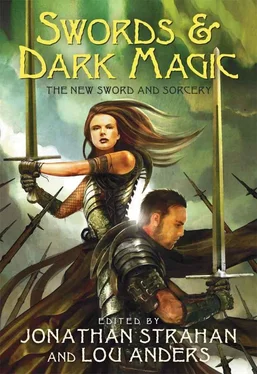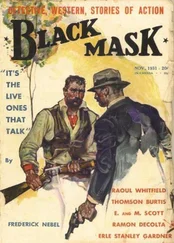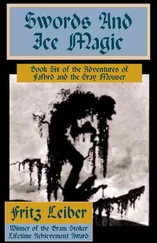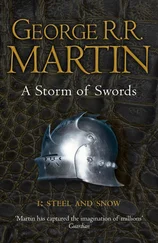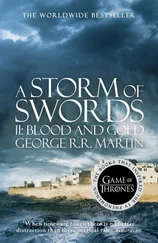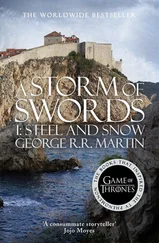Glancing at each other, they observed as one: “Dead guards. Royal disapproval. The False Prince.”
A moment later, the door was opened, and several more guards, these ones with whom Zire and Bretilf were unacquainted, bundled into the space. They seized, then dragged Bretilf and Zire, the foray ornamented by a selection of punches and kicks, up many stairs and into another cell, plain but less prisonlike.
“Lie there, you scum,” the guards instructed. “And prepare for horrors. The prince will arrive soon to judge you.” They departed, slamming the door.
“Do you have a knife or sword?” inquired Bretilf.
“Yes, my knife. And Scribe is still with me.”
“My Second Thoughts, also,” said Bretilf. “And with my knife, the carving even that I was fashioning with it.”
“Not disarmed then.”
“Nor bound.”
“It would seem,” said Zire, “this prince has enough magical power to deal with us, whatever we try. A great shame,” he added. “I had hoped to visit Traze next, over the river. And then the Red Desert.”
“And I to finish my carving.”
A spinning began in one of the cell walls. The two men watched attentively as it grew black, then electric, and roiled away, leaving an opening into a vast white marble chamber, its ceiling high as a full-grown oak. This was easily gauged, too, since live oak trees formed a colonnade along it. But they had trunks and boughs like twisted ebony, and blue leaves that quivered on their own, filling the air with a serpentine rustling.
At the room’s far end rose a tall black chair upholstered in violet velvet. On either side of this squatted a fearsome beast, something like a wolf crossed with a raccoon. In the chair sat a stooped, thin man. He was a young man, but with an old man’s face, and weaves of gray and white ran through his own light-colored hair. His eyes were like shards chipped from something blue and long-dead. But he wore fine clothes, and on his head a silver circlet. He pointed with a long, thin finger.
“You are here for punishment. You have slain my men, my chosen guards. For this, only the worst deaths are given. What do you say?”
“Oh, dear,” said Zire.
Bretilf added, “Since Your Highness has already decided, what point for us to say anything?”
“I will have you speak.”
Zire said, “It would be redundant to attempt to placate, please, or obey you. We’re dead. We can be as rude as we like.”
“Yet,” said Bretilf, however, “why are you called the False Prince? Or is that only because all Cashlorians hate you? Just as they hate your guards, who seem, all told, a pack of cowards, rapists, thieves, and cutthroats.”
The elderly young man cursed. He reached up and pulled at the silver circlet, next sending it bowling along the floor, until it fell over into a rug. The two monsters by the chair snarled.
“Hush,” said the prince to them. “I am called False because, although I rule here, by right of direct descent, I have never inherited the one artifact that would ensure my rule, and my power. It was stolen, during the last years of my father, the Old Prince’s, reign—due to some foolishness of his. At once the Benign Guardians, said to protect the city, left us. Efforts to recover the sacred item failed. They fail always—for several have gone to reclaim it for me. All here know where it is interred. But that counts for naught. None can master the resident magics that hold it in. And all who try perish on the quest. Perish horribly, I have been led to believe, and have indeed witnessed.
“For example,” said the prince, settling himself in a doleful mimicry of some storyteller, “there was the famous hero Drod Laphel. It was well known that he alone had, twice or thrice, bested five or six men together in a sword fight—”
“Only five or six?” grunted Bretilf sotto voce.
“My revered granny,” hissed Zire, “could beat off eight at least at a go. Albeit with a special cloak-pin she possessed and not—”
“You would do well to attend,” coldly broke in the prince. “It is an option I have, to torture you a little, before sentence. This can be waived or not, as you like.”
Zire and Bretilf composed themselves meekly.
“Drod Laphel,” went on the prince, “was also handy with spear and throwing ax, and had besides learnt certain charms that enabled him to bewitch serpents. When pausing in this city, he soon fell afoul of my guardsmen. Ten set on him, and accordingly he slew them single-handedly, if admittedly in two batches of five. Following the episode, I had him dispatched to thieve back the vital article I miss. I even had, numbskull that I was, some faith that he, of all men, might succeed where no other ever had. But no. Drod Laphel, the snake-charmer, athlete, and magician of swords, returned empty-handed. Quite literally, since he lacked both of them. And he was deader than a coffin nail, besides being the awful shade of rotted plums.”
Zire cleared his throat. Bretilf regarded his boots, as if counting the cracks in their leather.
“Are we then to conclude,” said Zire, “our punishment for culling your degenerate guards is, personally, to be forced to undertake the self-same quest?”
“You are brave men,” said the False Prince with dreary jealousy. “Bold and reckless as lions. Yes, you will be made to go. That much sorcery I can command. Understand this, too. If I were able to reclaim the needed object, and my rightful power given to me, I would not require a single human guard. I would throw the degenerates out, nor would they dare return here. Additionally, though it hardly merits saying, as you will never succeed at this challenge, whoever is successful will find his reward proportionate. Rather than death, riches beyond comprehension would be rendered you.” Sourly, he recapped: “But best not to dwell on futile daydreams. Nor have I any pity for you. Why should I pity others when my own lot is so cruel? The supernatural agencies that should guard Cashloria are gone, or in hiding. The heart of the city itself refuses to acknowledge me, and conversely does me ill-turns. Only those guards, and these two creatures here, stand between me and the vengeance of a rioting populace. Were all my weakness known, I should not last a minute. But my days are scarce enough. Cashloria’s thwarted energies are already killing me. Can you see? How old would you say I am?”
Neither Bretilf nor Zire replied.
“Fifteen,” said the False Prince, lowering his blue, dead eyes. “I am fifteen. And if I leave Cashloria, its stony atoms will tear me in pieces. While if I remain, they will drain me of all life in another year. Yes, you shall go and try to snatch back for me the sacred artifact, the Garment of Winning, as it is called. Why should I spare you? Who, in the name of any god, has ever spared me ?”
“So, tell me of your father,” said Zire, as they rode over the long stone bridge above the Ca.
“A minor lordlet, killed by assassins before my birth. My mother and grandsire raised me in the irksome shadow of his death. At eleven I broke free.”
“Then I believe your father died too young to have coined me .”
“Who was your own?”
“A chalk merchant. I grew up white as a sheep, till at seventeen some foe threw me down a well. Crawling out, no one recognized the red-headed youth who then stole the local grandee’s horse, and pelted for freedom. I doubt my father, either, sired you. He was less white than uncouth and uncomely. No elegant lady, wed to—or widowed of—a lordlet would have let him touch her maid, let alone herself.”
After this they rode awhile unspeaking. The river gushed green below, and on the farther bank the daytime forest was massed like a russet storm cloud.
Читать дальше
